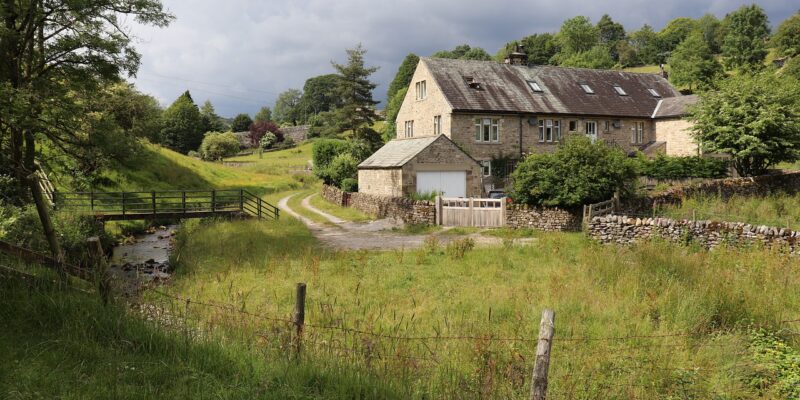Currently housing within agricultural tenancies are required to meet the “tolerable standard” however, from 28 March 2027 it will be necessary for agricultural housing to meet the repairing standard. This excludes holiday lets for less than 31 days, although includes employee-occupied agricultural houses.
Current obligations under the tolerable standard are basic. The standard requires the property to be structurally stable with sufficient ventilation as well as light and contain no issues with rising or penetrating damp. It must have an acceptable fresh water supply, drainage and sewerage system, along with a sink supplying hot and cold water, an indoor toilet, bath or shower also with hot and cold water. Furthermore, it must have a suitable entrance, an electricity supply meeting safety regulations and cooking facilities.
Additionally, from 1 February 2022 the Landlord must ensure hard wired, interlinked smoke alarms and carbon monoxide detectors are present.
In contrast, the “repairing standard” requires a pre-tenancy check and notification to tenants of any work required. Landlords thereafter have a duty to repair and maintain throughout the tenancy with a requirement to complete work within reasonable timescales. Properties must be:
- Wind and watertight with their structure and exterior in a reasonable state of repair and in proper working order
- Water, gas, electricity, sanitation, heating and hot water installations in a reasonable state of repair and in proper working order
- Fixtures, fittings and appliances provided by the Landlord must be in a reasonable state of repair and in proper working order
- Furnishings provided by the Landlord must be capable of being used safely for the purpose for which they are designed
Running parallel to this is the ticking clock for Energy Performance Certificates (EPC). Currently residential properties sublet by agricultural tenants are required to have an EPC in place. From 2027 it will be necessary for farmhouses occupied by tenant farmers to also have an EPC. As yet, it is not clear what the minimum standard will be, although the Government’s stated aim is to improve the condition of housing stock and it seems likely that many properties will need work to meet whatever the minimum standard is set at.
Landlords should therefore consider the statutory requirements now in the lead up to 2027, so that they are well placed to meet the repairing standard when implemented and professional advice should be sought if required.
*This article featured in the November edition of Farming Leader.


